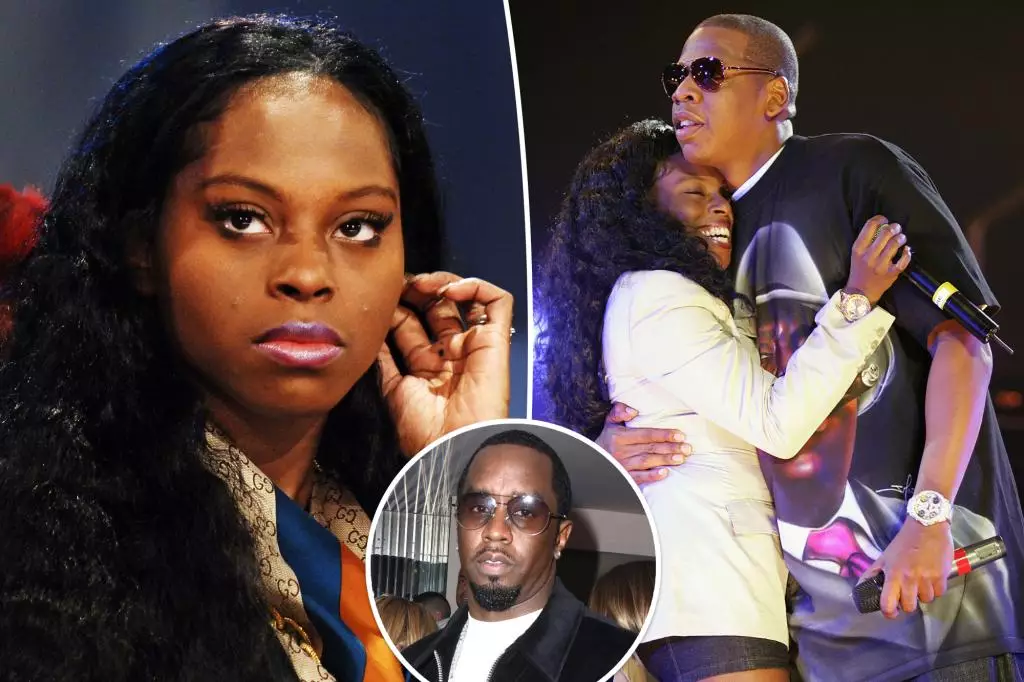In a shocking turn of events, Foxy Brown, the Brooklyn-based rapper known for her bold persona and lyrical prowess, recently stirred conversation online following serious allegations levied against Jay-Z. A civil lawsuit has resurfaced that accuses Jay-Z of involvement in a grievous crime—raping a 13-year-old girl alongside Sean “Diddy” Combs at an afterparty for the 2000 MTV Video Music Awards. This explosive claim has reignited discussions about the responsibilities of public figures and the oftentimes murky waters between celebrity and personal integrity.
Responding to the serious allegations, Brown posted a selection of enigmatic messages on her Instagram Story, which included a stunned “WOW” and a hesitant “WAIT,” accompanied by a shocked emoji. Such posts serve as a testament to the unpredictable nature of social media communications, especially when intertwined with serious allegations against respected figures in the hip-hop industry. Although these messages coincided neatly with the news break, Brown refrained from explicitly addressing either Jay-Z or Combs, which leaves much to interpretation.
Her symbolism reflected more than mere shock; it encapsulated the riptide of feelings evoked in public discussions of accountability versus celebrity reverence. Given her prior acknowledgments of her collaborations with Jay-Z, including notable hits like “I’ll Be,” the absence of clarified allegiance or condemnation further intensifies the curiosity surrounding her statements.
Foxy Brown’s history with Jay-Z has not been devoid of complexity. Earlier this year, she openly refuted claims regarding a non-disclosure agreement (NDA) that implied she was silenced about her interactions with the 24-time Grammy winner. Her sharp retort showcased her ferocity and unwillingness to be reduced to whispers. “Ain’t a MF alive could stop my story,” she declared, embodying the spirit of many artists who battle against narratives constructed by media and public perception.
It is critical to note that amidst all the noise, Brown has previously expressed support for Jay-Z, countering narratives that put her in opposition. Her deliverance—”Y’all want me to be anti-Hov so bad”—reveals the pressures faced by artists to align with or against public figures rather than maintain a nuanced position.
Following the emergence of the lawsuit, both Jay-Z and Combs firmly denied the allegations. Jay-Z’s reaction was particularly vehement, highlighting the psychological tactics believed to be at play. He accused Texas attorney Tony Buzbee of attempting to manipulate the situation for financial gain, stating, “You will not receive ONE RED PENNY!” This response encapsulates a broader theme observed among artists who often find themselves grappling with lawsuits designed to tarnish reputations while questioning the motives of their accusers.
The industry is now peering through the potential ramifications of this case, especially as Combs awaits trial related to separate charges.
The unfolding drama encapsulates the intersection of celebrity culture, accountability, and public opinion—a trifecta that continues to evolve within our media landscape. The responses from figures like Foxy Brown shed light on the often-restricted dialogue that accompanies such allegations, presenting both sides of a coin retold in countless narratives. As the story develops, the industry watches closely, for it not only reflects the struggles faced by individuals but also the collective conscience within the music world.

Leave a Reply